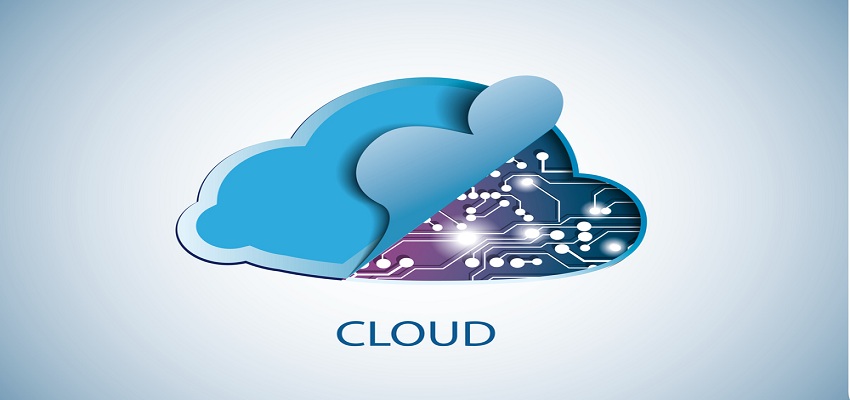The advent of cloud computing has led to a compilation of different technology vertical in data storage. Many of the companies are offering data centers with powerful processing powers for a nominal fee. This serves as a benefaction to small business owners that previously had to buy and maintain their physical servers. Processing the data on the cloud means that as your business grows you can increase or decrease the server space according to your needs.
Cloud space over the last decade has seen an exponential growth and acquisition of Red Hat by IBM for $33.4 billion gives us the idea that how the cloud computing space will pan out over the next decade. Here are some of the cloud service providers, who have been leading the race of service provider,
1. IBM Cloud
On March 2011, IBM announced the IBM smart cloud framework to support the smarter planet. IBM cloud is reasonably priced with pre-configured tools that can be customized according to user needs. IBM cloud offers service such as Platform as a Service (PaaS), Software as a Service (SaaS) and infrastructure as a Service (IaaS). IBM offers a wide range of cloud services both virtual and hardware-based servers for different types of networks like the public, private and management networks.
The hardware and virtual based servers are combined into an on-demand cloud platform. The on-demand cloud platform helps the user to achieve a complete infrastructure control. This provides the user a sole access to the entire server. The combination of hardware and virtual based servers will help reduce the security issues and improve the server speed.
IBM cloud is integrated and managed by a single system that can be controlled via a web portal or API (Application Programming Interface) or mobile apps. IBM cloud offers full server customization for the user with features such as pay as a feature and also handpicking the server.
IBM also offers Lite Tier, which offers flexibility in duration along with 256 MB of cloud foundry memory. These options help you certain the features the user wants to use and pay only for them.
2. Amazon Web Services (AWS)
Amazon Web Services (AWS) was founded in 2006; it provides on-demand cloud computing to individuals and organizations. AWS offers an extensive range of services in IaaS and PaaS domain. AWS offers extensive admin control via the secure web client. Users can access a number of features like encryption key creation and auditing. AWS lets the user customize the infrastructure requirements. This cost is far less if the user can set up the infrastructure in own premises. The EC2 service provides the user with the flexibility of acquiring and running servers as necessary.
AWS has three different pricing models: Pay as you Go, save when you reserve and pay less using more. AWS also offers a free 12 month trial period after that you can choose a paid plan.
3. Microsoft Azure
Microsoft Azure was released in 2010 and users can run any service on the cloud or combine with existing applications, data center or infrastructure. Microsoft Azure offers a wide variety of computing solutions taking into account different industry requirements. Azure doesn’t require physical servers on site; this reduces the cost of the server and also the cost of the server support team. The migration center from Azure also helps in transferring the data much faster and easier.
A 12-month free trial period is offered which includes access to all popular services along with $200 credit and 25 always free services. The user can tailor each of the plans according to the needs.
4. Google Cloud
Google Cloud Platform is a Google cloud service provider to create business solutions using modular web services. For the user, Google provides multilayer secured infrastructure to help the user to build, modify, save and share data securely. This is done through transparency in data protection and a team of highly skilled engineers working on the same.
Google cloud has a variety of tools to ensure consistent performance and management here most frequently used tools App Engine, container engine, cloud storage, computer engine, and big query. The user can have a smooth transition to virtual machines with flexible pricing.
5. Rackspace Cloud
Rackspace Cloud is a cloud-computing product company based in the United States (US). Rackspace was founded in the year 2006 and it’s one of the first companies to introduce a cloud computing product along with Microsoft releasing Azure in 2010. The Rackspace big cloud platform became a foremost cloud- computing product provider with its unique approach of big cloud platform with a personal touch for users.
Rackspace allows the user to choose a cloud provider with that user can easily interact using a Rackspace platform. The product developed by Rackspace works with major cloud providers such as Amazon Web Services (AWS), Microsoft Azure and VMware. The advantages of using Rackspace are the user has some of the biggest cloud providers for stability and for scalability user has a customer support of a smaller company.
The public cloud option provides quick and easy access to the IT resources the user needs to reduce the cost of the data center management. Public cloud is a multi-tenant service offers user service of “pay-as-use”. Public cloud is ideal for users that have heavy or unpredictable traffic. For more information on the cloud, you can download our whitepaper.
Rackspace offers a wide range of cloud service this includes public, private, hybrid and multi-cloud service. In the IaaS solution, Rackspace has now built an entirely different open source system as it uses the operating system Open Stack.
The private cloud offers the option of a single tenant environment, eliminating the noisy neighbor effects with reduced the server speed. The private cloud offers maximum security, dedicated only for your use. The cost of a private cloud is higher compared to a public cloud. Rackspace also has the option of hybrid cloud which gives access to a combination of both private and public cloud.
The user can sign-up for Rackspace for free this will include features like security guidance, technical account manager, free server monitoring, and reporting. Rackspace has an in-depth guide to their prices and features offered they can even be customized according to your needs.
For more information on cloud computing based on performance, pricing and storage download our whitepaper on cloud computing.














